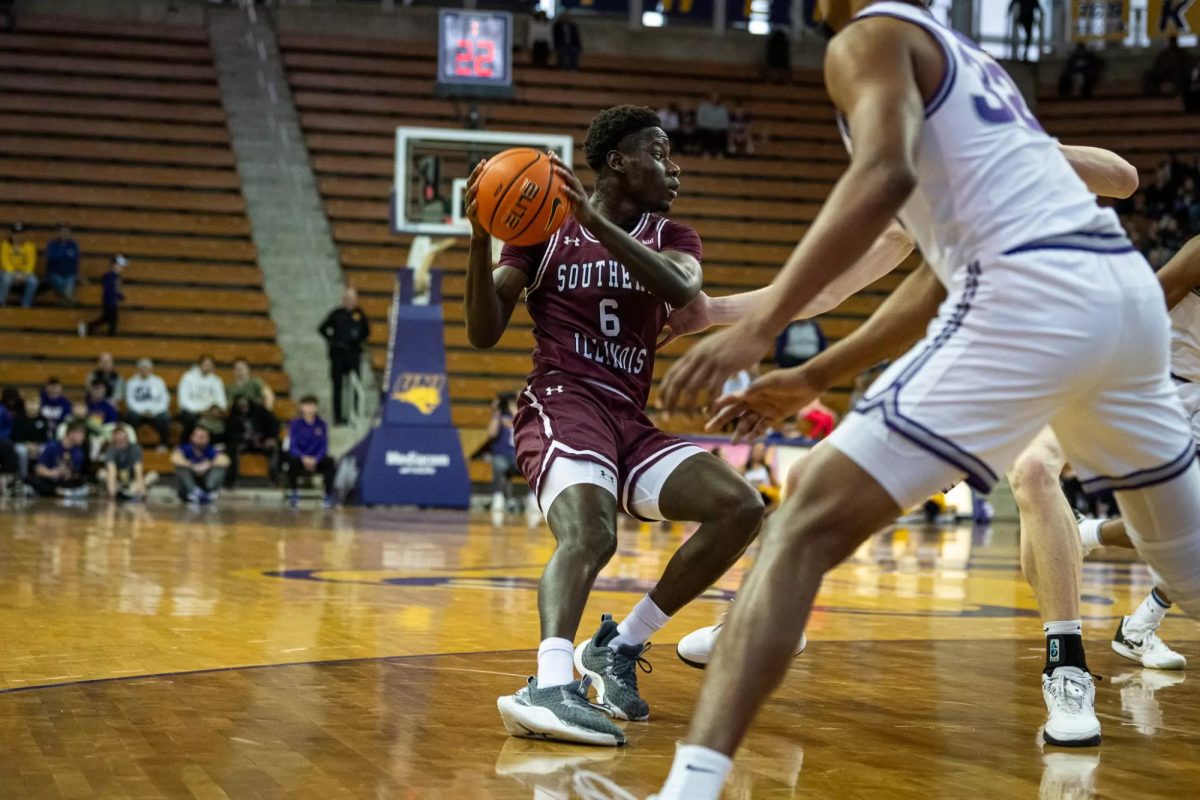Student summit celebrates Wilderness Act
November 9, 2014
The fourth annual student summit for the Association of Experiential Education celebrated the 50th anniversary of the 1964 Wilderness Act at Touch of Nature Environmental Center during the weekend.
Students from 15 universities, interested in experiential education, which includes outdoor recreation and outdoor education, came to SIU. These students led a conference where professionals in the field watched them teach workshops about their future careers.
The Wilderness Act, signed into law in 1964, protects wilderness areas. It defines a wilderness area as “undeveloped federal land retaining its primeval character and influence, without permanent improvements or human habitation.”
Advertisement
The law describes land preservation criteria to lower human impact.
It preserves wilderness by banning roads except for administrative duties such as evacuation. The law bans motorized equipment and man-made structures.
Glenn Poshard, a former SIU president and congressman who sponsored the 1990 Illinois Wilderness Act said when sponsoring the law, a group at a town hall meeting wore revolutionary war uniforms and presented signs relating him to American traitor, Benedict Arnold.
“People in a lot of areas in southern Illinois felt like ‘This is government take-over and we’re not going to have it,'” Poshard said in a speech to the 88 students attending the summit.
Poshard said sponsoring the law was controversial, but it was an accomplishment for his term because it preserves pristine areas of wilderness.
“I’m glad that I did something that I think future generations will enjoy,” Poshard said outside Freeburg Hall, the dining hall of the nature facility. He said it was important to ensure 25,000 acres of land would remain untouched
District Ranger Tim Pohlman of the United States Forest Service presented Poshard with a wilderness advocate award.
Advertisement*
Christopher Jones, who traveled from Port Angeles, Wash., to the summit, said wilderness in outlying areas filter the water and air near his community.
Jones, a graduate student in recreation ecology enrolled at SIU, said the wilderness plays a much more important part in his life on the West Coast as it has many protected areas.
He said there was a stark contrast in water taste in his area compared to the Midwest.
“If you go [to a Western wildlife area] and you drink the water, you’ll think, ‘Wow, this is good,'” said Jones, a trail warden who travelled almost 60 hours to attend the summit. “But then you will come back here and think, ‘There’s something funny about this water.’”
Jones, who is waiting to defend his master’s thesis, said he came back from Washington to reconnect with family and friends from southern Illinois.
He said his workshop showed what he learned about conflict management working for the Washington Department of Natural Resources.
Nadine Youssef-Hatch, a junior from Greenfield, Ind., studying environmental science at Indiana University, said people are starting to see the effect preserving the environment has on surrounding communities. She said nature provides environmental goods and services that support life.
“There’s this system that’s already here and works really well,” Hatch said. “They’re like, ‘Why don’t we destroy it and build this water purification plant because we need that?’”
Evan Coulson, adviser to the five master’s students in recreation who planned the event, said the law is important to the field of recreation. He said the professional work of outdoor recreation and education relies on use of public lands.
“Our nation set aside these protective lands, we have an area to program in,” said Coulson, a doctoral student in forestry.
He said this year’s summit marking the Wilderness Act’s 50th anniversary was special because without it those working in outdoor education would struggle to find places of solitude.
Tom Smith and Clifford Knapp, an SIU alumnus, were both professionals in experiential education and were key presenters at the summit.
Knapp, 75, was referred to as a pioneer of experiential and outdoor education.
“If you live long enough you get to be called a pioneer, I guess,” he said.
He said while the summit focused on outdoor education, experiential education covers many fields focused on teaching in different ways to better understand intended lessons.
He said the students at the summit are the next generation of outdoor educators and his purpose was to relinquish the responsibilities of his field to them.
“This generation is going to take over, so what I tried to do through the talks was give them some inspiration and pass the torch,” Knapp said.
Smith, another experiential education pioneer, said his work with an organization called Play for Peace takes him across the world bringing people together from conflicting groups.
“It’s a good example of the power of experiential learning,” Smith said, supporting himself by a cane topped with the carving of a raccoon.
Poshard said the students at the summit have the chance to change the world.
“This young generation is going to accomplish so much,” he said. “They’re workers. They want to do the right thing.”
Advertisement







